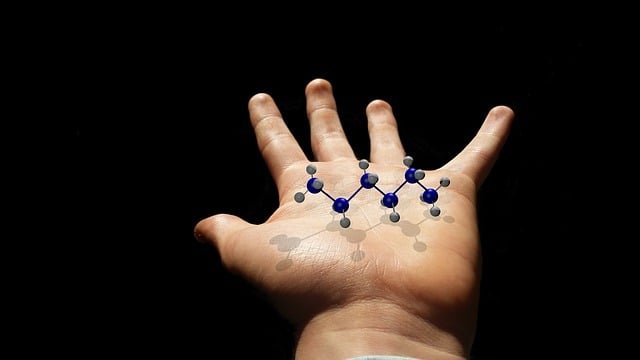Microbes in our gut are important for overall health, but certain bacteria can promote inflammation, damage DNA, and support the growth of diseases like cancer.
Disturbances in the delicate balance between oxidation and reduction reactions—known as “redox homeostasis”—within the gastrointestinal tract are known to cause oxidative stress and contribute to various diseases.
How this redox balance is influenced by bacterial feeding habits and growth inside our gut microbiome has long been of interest to scientists, with previous studies showing how carbohydrates are broken down by gut microbes to generate energy in this intricate ecosystem.
In new findings published in Cell Host & Microbe, the lab of Stavroula Hatzios at the Yale Microbial Sciences Institute has uncovered how different types of gut bacteria feed on a prominent dietary antioxidant found in mushrooms and other common foods.
The findings shed light on a new molecular pathway as a potential source for therapeutics to tackle colorectal cancer.
Our gut bacteria break down small molecules found in food to generate metabolites used during the body’s energy production process—or what we call our metabolism.
To maximize energy production under oxygen-deprived conditions in the colon, certain gut bacteria work together to generate metabolites that drive anaerobic respiration.
Whether similar microbial pathways exist to convert other prominent dietary nutrients, such as antioxidant vitamins, into fuel for redox reactions has remained unknown.
Employing metabolomic and metagenomic techniques, the Hatzios lab set out to identify novel microbial metabolites of the dietary antioxidant ergothioneine in patient cohorts and mouse samples.
Abundant in mushrooms and fermented foods, the sulfur-containing antioxidant ergothioneine is not synthesized by plants or animals, but acquired from the diet and imported by host bacteria.
“We identified a completely new chemistry, where ergothioneine metabolism facilitates interactions between different species of gut bacteria,” explained Zhe Zhou, a postdoc working with Hatzios, who is an associate professor of Molecular, Cellular and Developmental Biology and of Chemistry at Yale, and a member of the Yale Cancer Center.
The Hatzios lab uses chemical and biological tools to study enzymes and other proteins that shape host–microbe dynamics in the gastrointestinal tract.
For the first time, their findings show that bacteria from different phyla can “cross-feed” a dietary antioxidant to drive energy-yielding redox reactions in the gut.
Utilizing mass spectrometry at the university’s West Campus, along with computational analyses performed by collaborators at the National Institutes of Health, the team identified a microbial metabolic pathway that is enriched in colorectal cancer patients.
Unraveling evolutionary clues to the interspecies interactions in our gut is helping scientists illuminate how the microbiome functions, bringing us closer to treatments that protect cells from oxidative damage and related diseases.
More information:
Zhe Zhou et al, Metabolic cross-feeding of a dietary antioxidant enhances anaerobic energy metabolism by human gut bacteria, Cell Host & Microbe (2025). DOI: 10.1016/j.chom.2025.07.008
Citation:
Mushroom-derived molecule drives microbial chemistry linked to colorectal cancer (2025, August 6)
retrieved 6 August 2025
from https://medicalxpress.com/news/2025-08-mushroom-derived-molecule-microbial-chemistry.html
This document is subject to copyright. Apart from any fair dealing for the purpose of private study or research, no
part may be reproduced without the written permission. The content is provided for information purposes only.


